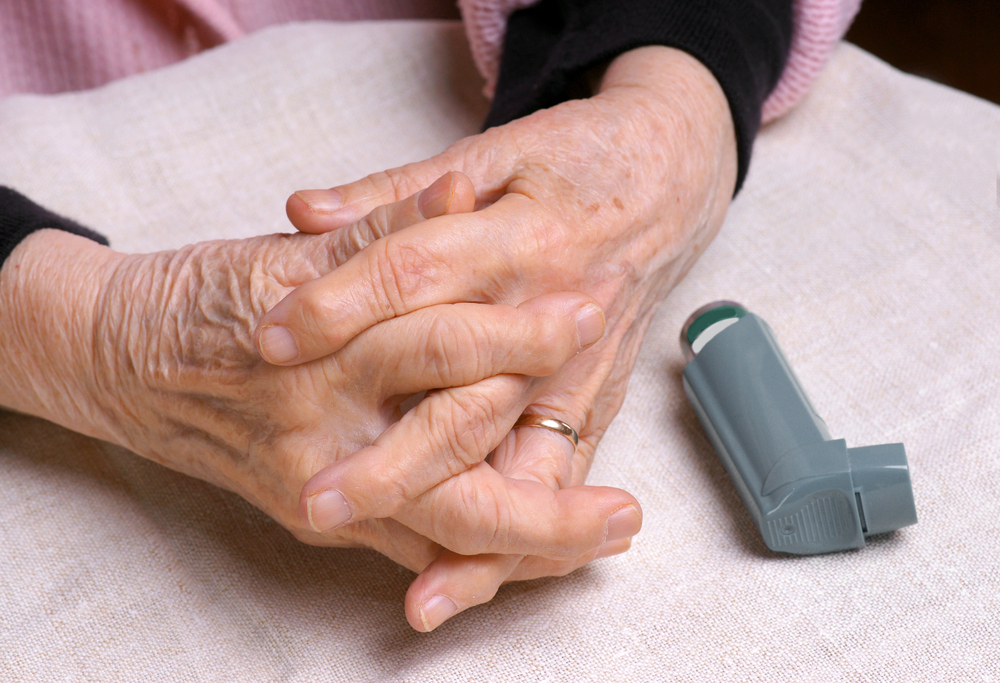Asthma in the Elderly: Does Asthma Get Worse With Age?
Category:

When we think of asthma, we often associate it with children or athletes. However, we seldom discuss how it affects the elderly population Is asthma in the elderly a different disease compared to asthma in children? In this blog, we’ll explore the relationship between aging and asthma and whether asthma symptoms tend to worsen as we age.
Can Asthma Get Worse With Age?
The answer is complex and can vary from individual to individual. Unlike asthma in more youthful individuals, asthma in older adults rarely goes into remission. Instead, asthma is more likely to remain a potentially serious, and many times, a disabling disease. There are factors associated with aging that can exacerbate asthma or its symptoms, which include:
Reduced Immune Function: With age, the immune system tends to become less efficient, making seniors more susceptible to infections like colds or the flu, which can, in turn, trigger asthma symptoms.
Medication Sensitivity: Elderly patients might be on various medications for different ailments. Some of these can interfere with asthma medications or even exacerbate asthma symptoms.
Decreased Lung Function: Age-related changes in lung function, such as reduced lung volume and elasticity, can make asthma symptoms feel more severe.
While aging can introduce some challenges to asthma management, it doesn’t mean the golden years can’t shine bright. With awareness, medical support, and a proactive approach to health, seniors with asthma can breathe easier and continue enjoying life to its fullest.
Asthma Symptoms in Older Adults
Asthma is a chronic inflammatory disease of the airways in the lungs. Asthma symptoms in older adults are similar to younger age groups. However, due to age-related changes in the respiratory system, asthma symptoms in older adults may present differently.
- Shortness of breath
- Tightness or pain in the chest
- Being awake at night due to asthma symptoms
- Cough
It is important for older adults to monitor their symptoms closely and seek medical attention if their symptoms worsen or do not improve with treatment.
Getting Diagnosed with Asthma as a Senior
Late-onset asthma can be challenging to diagnose in the elderly due to several reasons. Older adults often suffer from other health issues, which may result in the misdiagnosis of asthma. Lung function tests may pose problems, and medicines used for other conditions can further complicate the diagnosis. Additionally, age-related illnesses such as chronic obstructive pulmonary disease (COPD), congestive heart failure, acid reflux disease (GERD), and paroxysmal arrhythmias make it more difficult to diagnose asthma in older adults. Certain medications such as heart medicines, cholinergic agents, aspirin, and non-steroidal anti-inflammatories (NSAIDs) can tighten airways and exacerbate asthma symptoms. If you suspect that your elderly loved one has onset asthma, it is vital to take them to a doctor who can perform physical exams and lung function tests and review their medical and family history.
How to Manage Asthma in the Elderly Patients
Treatment of asthma in the elderly is vital if your loved one has been diagnosed. When it comes to controlling asthma in seniors, it is important to explore all available treatment options beyond inhalers. Below are some tips for managing asthma in seniors, as well as alternative treatment options to consider.
- Reduce or avoid triggers. This can include cold air, weather changes, smoke, pollution, or even strong emotions.
- Take prescribed medications. These can work to relieve symptoms after asthma symptoms flare up or even prevent inflammation in your airways. This may include an asthma inhaler for elderly individuals.
- Talk to a physician. Speak to a professional about a proper action plan. This can include taking note of when symptoms get worse and taking note of what to do in an extreme emergency.
- Monitor overall health. Asthma shouldn’t necessarily be treated on its own. Other medical conditions or illnesses, such as allergies, can make asthma worse. Be sure to keep all of these other conditions in check.
Download Our FREE Healthy Aging Diet Guide
The Role of Caregiving in Senior Asthma Management
Caregivers can be a game-changer for seniors with asthma. Their support ensures a home free from common asthma triggers and are always on the lookout for signs of an asthma flare-up. More than just practical assistance, they provide the comfort of knowing someone is always there to help. This level of personalized care means seniors with asthma can live with fewer worries, and their families can have peace of mind.
Subscribe
Date: 2023-09-14
Category:


